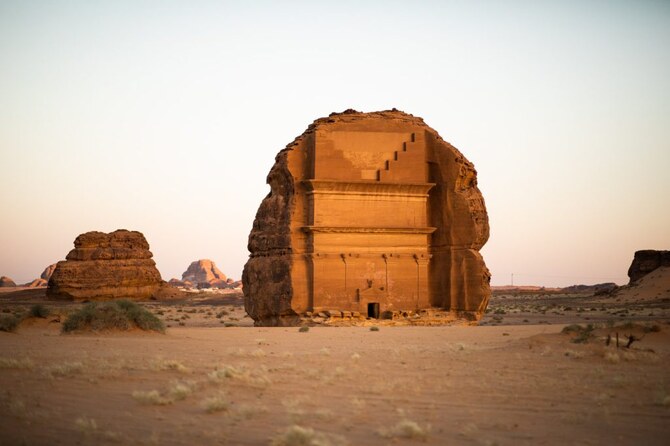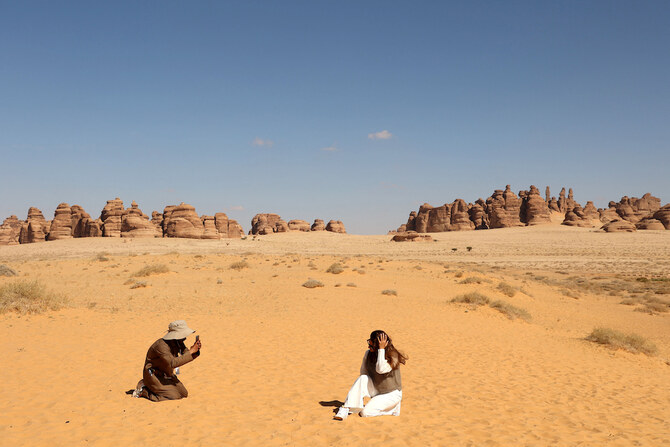DAVOS: Taking a socially and economically responsible approach to development and working closely with committed partners is the key to fulfilling AlUla’s potential.
This is according to the Royal Commission for AlUla’s Chief Development and Construction Officer Ben Hudson, who spoke to Arab News at the World Economic Forum in Davos this week.
Hudson also emphasized the commission’s commitment to cultural preservation in transforming AlUla into a global destination.
Hudson underscored the RCU’s alignment with Saudi Arabia’s Vision 2030 reform program. “(The) RCU is unlocking AlUla’s economic, investment, and touristic potential through comprehensive regeneration, integrated partnerships, and inclusive sustainable development.”
Highlighting the AlUla Sustainability Charter as a blueprint for the organization’s initiatives, he said the RCU was also focused on revitalizing the built environment, community empowerment, and light-touch tourism.
Citing the example of the Dar Tantora The House Hotel, he said this was tangible proof of its plan in action, where the blending of traditional materials with local expertise has created new socio-economic opportunities while preserving the cultural heritage of the area.
Hudson was keen to highlight the RCU’s plans to contribute SR120 billion ($31.9 billion) to Saudi Arabia’s gross domestic product by 2035, driven by sustainable tourism and investment.

Ben Hudson, Royal Commission for AlUla’s Chief Development and Construction Officer. (Supplied)
In Davos, Hudson said the RCU was looking to foster global partnerships to accelerate AlUla’s regeneration.
“We are building on AlUla’s position as an ancient crossroad of civilizations, transforming AlUla into the world’s largest living museum, and a place for our community to thrive, (and this) can only be achieved when we work together,” he said.
“Our first strategic partnership was established with France, almost at RCU’s inception. Since then, we’ve grown our network, establishing partnerships with China, Italy, the UK, and world-class partners from the US, among others.
“We continue to make progress in evolving our partnership portfolio by working with UNESCO, the International Union for Conservation of Nature, the World Bank, and many others,” he said.
These collaborations enable billions of dollars in private sector investment across hospitality, real estate, cultural conservation, and infrastructure.
Hudson emphasized the importance of co-investment, inviting partners to join in developing key infrastructure, such as power and water, and creating vibrant public spaces. “This gives our partners confidence and provides a platform for sustained engagement, be it with our community or across the business landscape,” he said.
Preserving AlUla’s rich cultural heritage remains central to the RCU’s mission. Hudson described the area as a “hidden gem,” now revealed to the world, with strategies in place to balance conservation with growth.
Collaboration with organizations including the International Council on Monuments and Sites has enabled the creation of Heritage Impact Assessments to protect cultural areas while facilitating new construction, he said.
“Our goals are shaped by community feedback, from the people who stand to benefit the most, whose culture and heritage make AlUla what it is,” he explained.
The RCU’s short-term goals focus on making AlUla a livable destination that embodies the Quality-of-Life Program of Vision 2030, by attracting investment, enhancing infrastructure, and creating opportunities for local and global stakeholders.
Looking to the future, Hudson said the RCU’s commitment was to “creating a destination built around a vibrant culture and ancient heritage —somewhere to live, work, invest, and grow.”

















